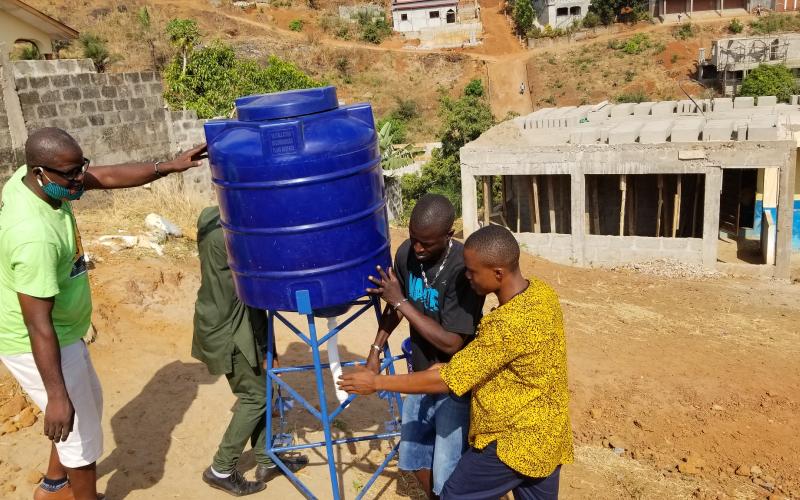
Not everyone can afford the luxury of clean tap water. In fact, there are nearly 1 billion people in the world suffering from diseases caused by drinking contaminated water.
Access to clean water is one of the biggest issues in rural (and sometimes urban) Sub-Saharan Africa, where women and children often have to walk more than 8 hours each day to collect water which is unsuitable for drinking. The problem may not start with water, but it certainly ends there – with more people dying of water-related illnesses than of war or famine. The long-term consequences of poor water supply are disease and poverty, which ultimately lead to children missing out on a much-needed education.
How is the water contaminated?
Water has natural bacteria and most of it is good for us. But a water source can become contaminated through animal faeces and tiny worms which cause serious, long-term health problems.
How does this affect the communities?
It’s important to realise that without suitable water, breaking out of the poverty cycle is extremely difficult. It’s impossible to grow food, build housing and work without a sustainable water supply.
For those who manage to survive, disease affects their ability to live a normal life. Their health deteriorates, their education suffers and their opportunities are never realised. It is particularly important for girls to have access to sanitation facilities during their adolescence, because if they don’t they will drop out of school. Furthermore, the time women spend collecting water is time they are not spending at school. Education is essential in developing countries where poverty is a primary concern. Access to education is one of the fundamental issues of the developing world because without it, true equality can never be achieved. It is incredible that something as simple as clean water can have such an impact on people's lives.
What can be done?
It doesn’t cost much for us to help ease the communities’ suffering. A small amount on our part can make a huge difference. The World Health Organization reports that for every $1 invested in water and sanitation, there is an economic return of between $3 and $34. Providing access to safe water requires implementing a well treatment system. Teams of dedicated individuals collaborate to build these wells close to the communities that need them. Building wells closer to the villages means less time is wasted collecting water and more time is spent on education.
Is that all?
Much goes into the water project process; the people involved need to be committed from start to finish and willing to monitor the progress of the wells. Assessments are carried out from the moment the well is implemented, to evaluate whether it has had the desired results. Water projects like these take time to set up and to have a measurable impact on the community. That is why follow ups are so important. If you are interested in learning more about water projects in Africa, visit The Water Project and find out how you can help today.

